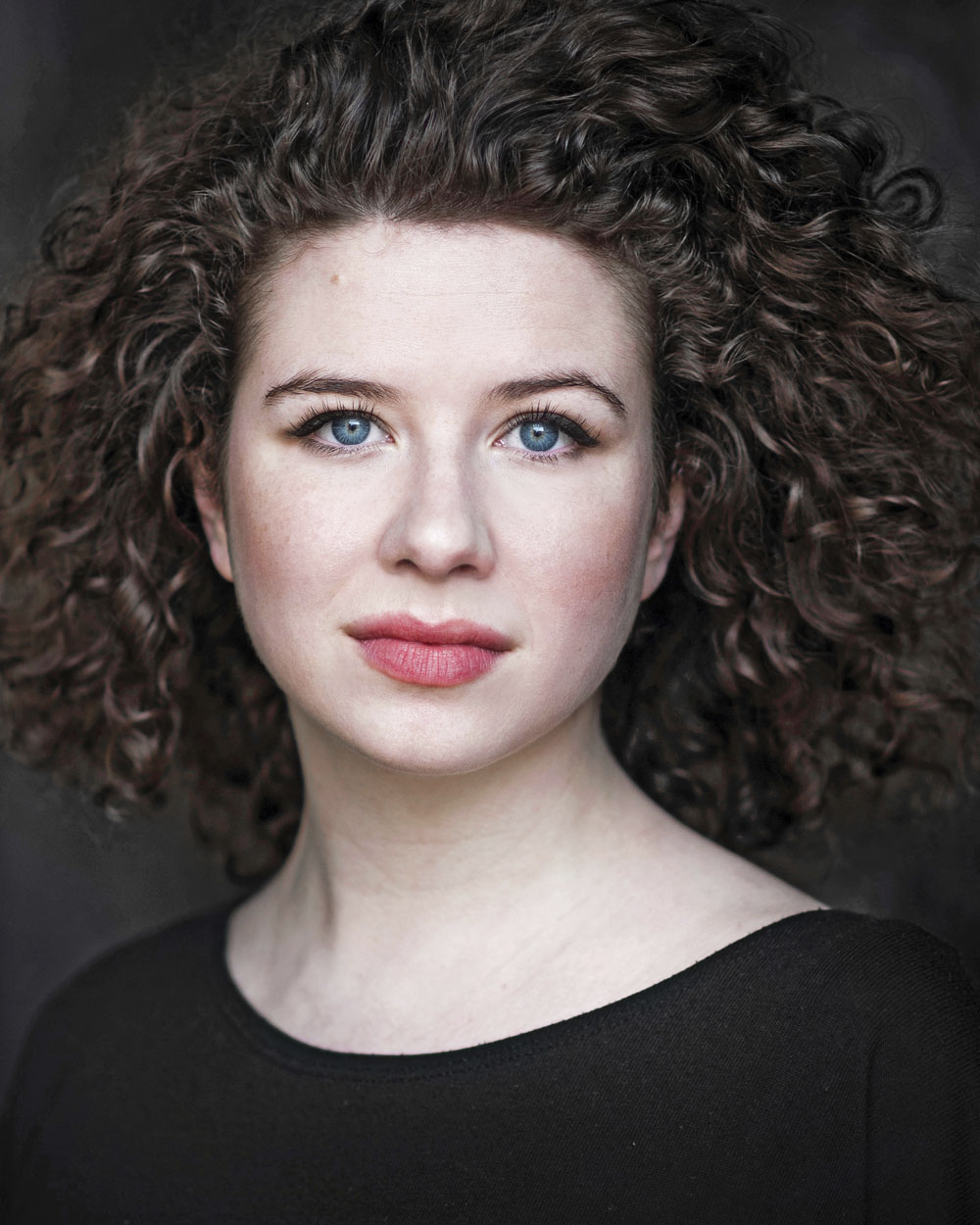Isobel McArthur wrote, appears in, and co-directs Pride and Prejudice* (*sort of) which is running at the Criterion Theatre in London. Susan Elkin met her.
They are rehearsing in an additional understudy. And I sit at the back of the empty stalls and watch the meticulous work until there’s a short “tea break” and Isobel is free to come and chat to me. Her co-director, Simon Harvey, hospitably pops off to find us both some tea.
I ask her first about the new understudy I’ve been watching. “Yes, we’ve always worked with two but under present circumstances we need a third for safety and she’s great – only 22 and straight out of drama school but fearlessly willing to immerse herself. Actually, so far, we have done a hundred shows here and lost only one – because a cast member had a bad reaction to the booster. But we need as much safety net as we can get.”
Pride and Prejudice* (*sort of) opened to excellent reviews in London last autumn having played successfully in Scotland. It retells the story of Pride and Prejudice from the point of view of five female servants who act it out with lots of Austenite wit, panache and many songs in karaoke mode. Most of the cast are skilled actor-musos. It’s a thoughtful, intelligent hoot and when I reviewed it, I gave it a rare five stars.
McArthur grew up in Manchester, the daughter of two Scottish teachers. “I joined the local church hall drama group when I was about 11, and soon realised that this was what I wanted to do in life.” There was a piano in the McArthur home and she developed music skills. “I was given some birthday money one year and wanted to buy something which would last, so I bought that red accordion which is used in the show” she says, adding that the most important thing today for any young actor, wanting to stay in work and get jobs, is to develop the widest possible skills set.
Despite her youth, Isobel made some wise training decisions. “I knew that, at eighteen, I simply didn’t have the experience for drama school, so I went to Glasgow University. I suspect my degree in Scottish Literature suffered a bit because I spent a lot my time there making theatre. Then I did a Masters degree at Royal Conservatoire of Scotland.”
So she’s been around the Glasgow theatre scene for quite a while? “Yes and it’s quite a small network which is partly how the five original cast members for Pride and Prejudice* (*sort of) came together. We all knew each other because that’s how it is in Glasgow.”
Four years ago, Andy Arnold, the artistic director of Glasgow’s Tron Theatre, intimated that he wanted a restaged classic for his summer mainstage slot. When Isobel and friends suggested Austen, Andy expressed interest. That led to a commission and a long period of development and rewrites. In her programme note Isobel jokes that the show was variously set in an Austen Museum in Bath, born out of an Austen-themed hen weekend and narrated entirely by a horse – etc. Eventually she concluded that: “… a story from a historical period so defined by divisions of class and status needed to be told by servants.”
“Our show is hilarious but ninety per cent of the humour is straight off the pages of the novel.”
Isobel did not read any Jane Austen at school or while she was growing up and came to Pride and Prejudice completely fresh at age 28 when she scooped it up in a big haul of reading material from an iconic second-hand bookshop in Glasgow. “It was a complete revelation” she says. “It’s funny. I was laughing aloud from the very first page.” Very taken with Austen’s perspicaciousness and her feminine politics, Isobel adds “And yet there have been many solemn, rather precious TV and film adaptations, none of which capture her humour. And that’s what I wanted to put right. Our show is hilarious but ninety per cent of the humour is straight off the pages of the novel. Austen’s political, satirical incisiveness is still, perhaps regrettably, as relevant today as it was two centuries ago.”
So the show is a huge success – except that most theatre is in crisis at present. I ask her about ticket sales in the wake of nearly two years of pandemic uncertainty. “We’re on a knife edge” she says with disarming honesty. “In the run up to Christmas we had quite full houses and that was great. It’s much quieter now. In normal times producers would compare statistics about what normally happens in January and February so it would be less worrying. But everything at the moment is unprecedented so who knows?”
I wonder what it next on Isobel’s to-do list. It would be very easy to turn ‘Austen* (*sort of)’ into a new theatre genre and devote the next twenty years to it. There are five more novels after all. But Isobel is not going to do that. “My bookshelves are a smorgasbord. I’ve decided – and have proved – that I can adapt but I don’t intend to be pigeonholed. I’m thinking now about Scottish literature (which I studied at university) and specifically about Robert Louis Stevenson. He wrote all that swashbuckling stuff and I think his deeply troubled personal life is hidden within the literature, so I’d like to write something which explores those links.” And yes, she agrees with me ruefully, in the precarious world of commercial theatre a title such as Treasure Island or Kidnapped, recognised by the public is more likely to attract ticket buyers than something unfamiliar.
The cast of Pride and Prejudice* (*sort of) is five young women. “We wanted to do it as a piece of all female theatre and the cast of five reflects the five daughters – and odd numbers always look good on stage” explains Isobel, who is interesting on young female actors and work opportunities.
“Drama school teaches young women to play certain sorts of roles,” she says. “When, later, they come into audition rooms they find it really quite difficult to play, say a cad, a grotesque or a high status male convincingly. And yet if you play nothing but ingénues in your twenties, when you get to thirty, you’ll be finished because there are so few roles and opportunities for that age group.”
Moreover, Isobel – eloquent, articulate, passionate – argues, once you’ve broken the barrier and played those off-the-wall roles and learned to be still, sometimes a bit of that might transfer itself into your everyday life. “Women tend to be self effacing, apologetic and desperate to please” she says giving a good actor’s imitation of such a person at, for example, a job interview. “Playing roles which take you somewhere quite different might just help you to realise that you can feel calmness in your body, sit back quietly and just let things develop.”
Then it’s time to let this impressive, understated, talented woman go so that she can have a few minutes proper break before rehearsals start again and she re-emerges playing the accordion, singling basso profundo notes and commanding the stage as an unsmiling Mr Darcy – and advising the new understudy how to hold down guitar chords.
Pride and Prejudice* (*sort of) is booking until 17 April 2022. Tickets from £9.50 prideandprejudicesortof.com/tickets-info
There are school group
prices (one free teacher seat to
every 10 pupils) and free education resources
prideandprejudicesortof.com/education



